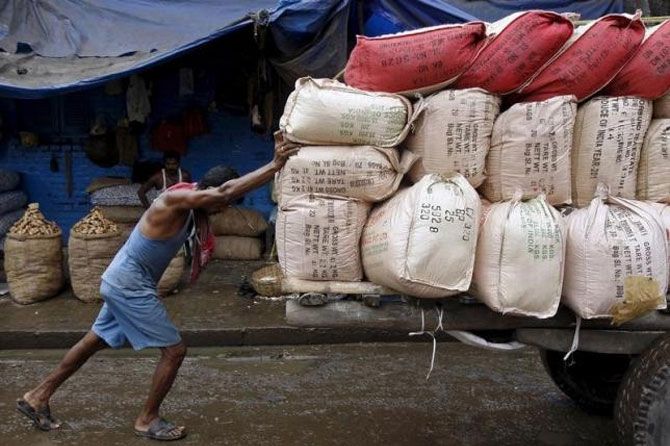Options include raising both excise and service tax rates in FY16

The Centre is confident of rolling out a combined goods and services tax (GST) at the national level in time to meet the April 2016 deadline, even before states get their legal structures in order.
“Nothing in the law stops the Centre from doing so in this financial year (FY16),” said an officer in the know of the developments. The plan is a fallback option, to be resorted to only if the government is unable to make the first of the three Constitution amendment Bills sail through in the current session of Parliament. One of the options is to raise both excise and service tax rates in FY16, as these are way below any expected GST rates.
Sources say the government is very serious about meeting the April deadline. Doing so will restore confidence among investors, domestic and foreign, about the government’s ability to make reforms happen, especially when it involves Parliament. The prime minister has already announced to investors in Singapore that GST will happen by April.
There is another reason for pushing Plan B. Earlier this year, the government was embarrassed as it could not get amendments to the land Bill passed in Parliament. If the GST Bill slips, too, it will create an impression of a politically weak government at the Centre, which could have a cascading effect on the flow of foreign investments into other sectors.
One element of this plan has already come into practice with the imposition of the Swachh Bharat cess on service tax. This moves the effective service tax rate closer to the expected GST rate. At some time, the cess levied on all services will be merged with the tax.
The central excise duty, currently rounded off to 12.5 per cent for most goods, would also be harmonised soon. As there are a few goods on which the excise duty rates are different from the mean rate — like those on cars — the bunching would be more elaborate.
A practical problem that could occur soon will be the demand from business to provide credit for higher tax. These credits are used by enterprises to set off against their other tax liabilities, reducing their payouts. The plan being examined now is to provide them deferred credit wherever the set-offs are not in place.
“All these can be done within FY16, with the Budget as the occasion to complete the exercise,” said a source.
As part of Plan B, a lot of homework has been done on the administrative back-haul of the tax. From now till March, many elements of the tax will be announced through a series of notifications.
A critical element of the GST structure which has come into place is the income tax backbone. The GST Network has already begun harmonising tax applications of all state governments. The work has proceeded without glitches, as there are no political battles being fought over these, said the source. For small or big businesses, this will be the biggest confidence-building measure about the pan-national tax, said the source. Once the benefits of integrated taxation can be passed on to businesses and consumers, it will goad fence-sitting states to jump in.
The work on Plan B is moving ahead, said the source, to take advantage of the time space between the end of the winter session of Parliament in the third week of December and the beginning of the Budget session in February 2016.
This is despite a meeting on Friday between Prime Minister Narendra Modi and Congress leader Sonia Gandhi. The finance ministry had got the Bill cleared by the Lok Sabha in the past session, but the Bill is pending in the Rajya Sabha, owing to political opposition.
Plan B would, however, continue with some of the concerns raised by tax analysts, including the optional one per cent tax on inter-state movement of goods. While the Centre has claimed it is an optional instrument, the Congress party and experts say it is sure to become mandatory soon.
Decoding Plan B
- The Centre might roll out the GST Bill even before states gets their legal structures in order
- Doing so will restore confidence among investors about the govt’s ability to make reforms happen
- Both excise and service tax rates might be raised in FY16 as these are below expected GST rates
- The imposition of the Swachh Bharat cess on service tax is one element of this plan
- Central excise duty — rounded off to 12.5% for most goods — would also be harmonised soon
- From now till March, many elements of the tax will be announced as part of this plan
Photograph: Rupak De Choudhuri/Reuters











